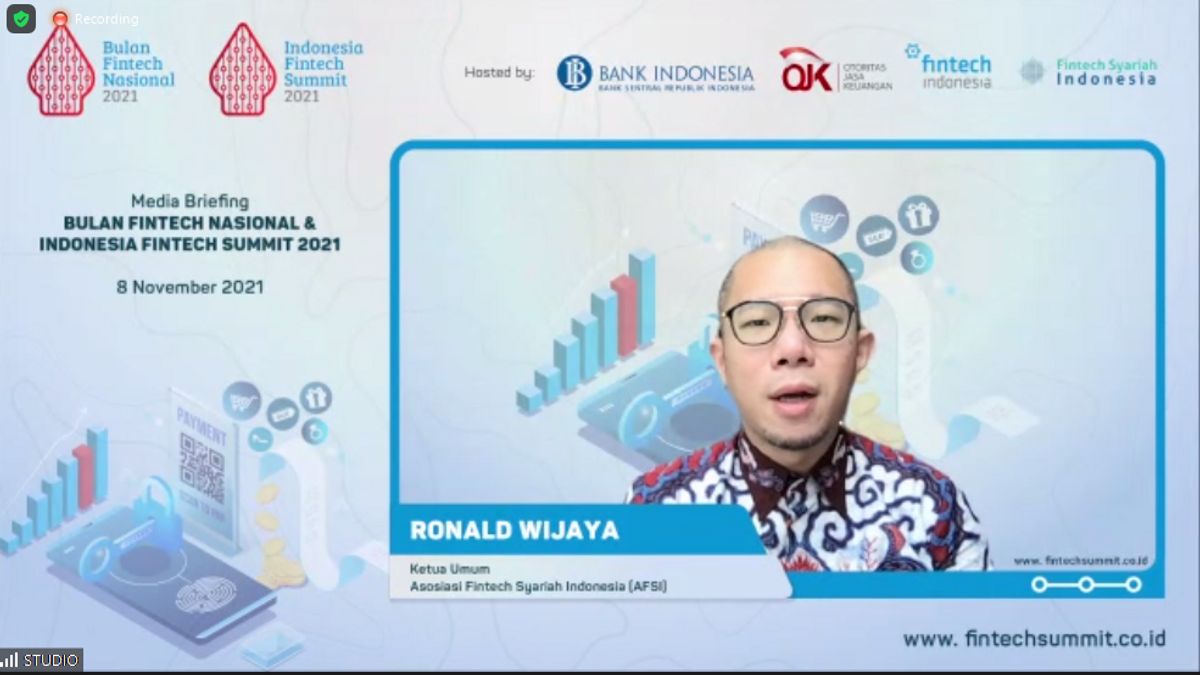JAKARTA - Chairman of the Indonesian Sharia Fintech Association (AFSI) Ronald Yusuf Wijaya does not deny that in the last two years many sharia fintech business actors have been forced to close productive activities. According to him, the pandemic is the main reason why business pressure is so great.
"Indeed, we see that during a pandemic, there are sharia fintechs that cannot continue operations, the numbers are actually quite significant," he said in a webinar on Monday, November 8.
Ronald said that actually the Islamic-based digital finance industry still has the potential to grow. The reason is, the segmentation of Islamic finance in Indonesia has not been fully exploited optimally.
Moreover, many new business actors who enter this business have quite good fundamentals.
“On the other hand, we see a lot of potential new players who come from quite strong backgrounds. We hope that their presence can become a new support system for the sharia fintech industry," he said.
Meanwhile, several other assumptions made by Ronald are that the number of MSME actors who partner with fintech companies is still growing. Then, the growth of the sharia fintech industry is relatively large because its user base is still relatively limited.
"We have discussed with Islamic finance providers, they see the growth of new users every month is quite significant, maybe this will linearly be equivalent to the growth of the Islamic fintech industry itself," he explained.
For information, the Financial Services Authority noted that the distribution of funds carried out by sharia fintech showed a very good rate of return. It was also mentioned that 80 percent of the funds channeled were used for productive financing.
“The growth of sharia fintech in Indonesia is very encouraging. We will continue to encourage this industry to provide the widest possible benefits for the community,” he said.
To note, until October 2021 there are 17 legal sharia fintech companies that have obtained registered status and are licensed by the OJK. Of this number, six of them are digital financial innovation companies and one is a sharia security crowdfunding company. While the rest are fintech peer-to-peer lending (online/loans).
The English, Chinese, Japanese, Arabic, and French versions are automatically generated by the AI. So there may still be inaccuracies in translating, please always see Indonesian as our main language. (system supported by DigitalSiber.id)












